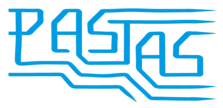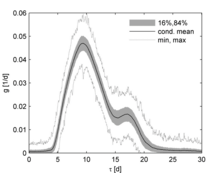Time series analysis

Pastas is an open source Python package for the analysis of hydro(geo)logical time series. Pastas has two goals: to provide a scientific framework for developing and testing new methods, and to provide a reliable, out-of-the-box software tool for groundwater practitioners.

Groundwater wells near rivers can be affected by infiltration of river water. In the context of drinking water protection, the crucial issues are the proportion of river infiltrate in the produced water and the residence time in the aquifer. Tracer tests can be conducted for this purpose. However, on larger rivers, such tests require the injection of large quantities of the tracer. As an alternative to artificial tracer tests, the deconvolution method, in which time series of electrical conductivity and temperature are used to make quantitative statements about mixing ratios and residence times, can be used. An R based program with GUI can be used free of charge. Code is available on request (Christian.moeck@eawag.ch)
Publication:
Cirpka, O.A., Fienen, M.N., Hofer, M., Hoehn, E., Tessarini, A., Kipfer, R., Kitanidis, P.K., 2007. Analyzing bank filtration by deconvoluting time series of electric conductivity. Ground Water 45 (3), 318-328.
Diem, S., Ammann, L., Poppei, J., 2015. Charakterisierung der Flussinfiltration – Anwendung unterschiedlicher Methoden auf Zeitreihen im Aaretal, Aqua & Gas 4, 42-52.
Liao, Z., Osenbrück, K., Cirpka, O.A., 2014. Non-stationary nonparametric inference of river-to-groundwater travel-time distributions. J. Hydrol. 519, 3386-3399.
Vogt, T., Hoehn, E., Schneider, P., Cirpka, O.A., 2009. Untersuchung der Flusswasserinfiltration in voralpinen Schottern mittels Zeitreihenanalyse. Grundwasser 14 (3), 179-194.
Vogt, T., Hoehn, E., Schneider, P., Freund, A., Schirmer, M., Cirpka, O.A., 2010. Fluctuations of electrical conductivity as a natural tracer for bank filtration in a losing stream. Adv. Water Resour. 33 (11), 1296-1308.